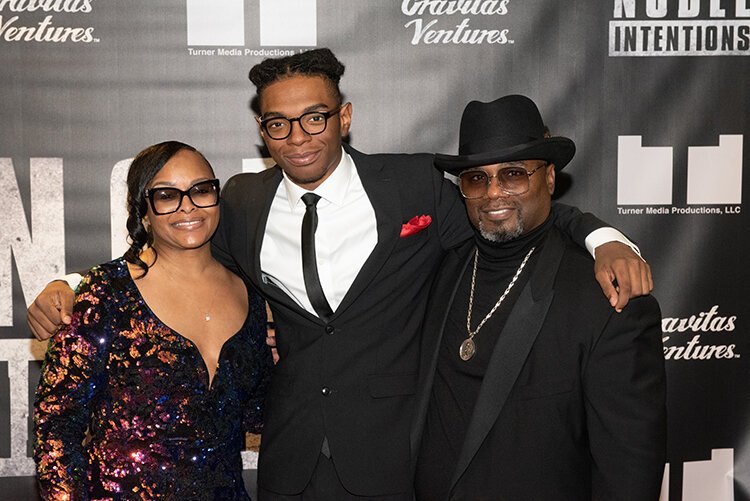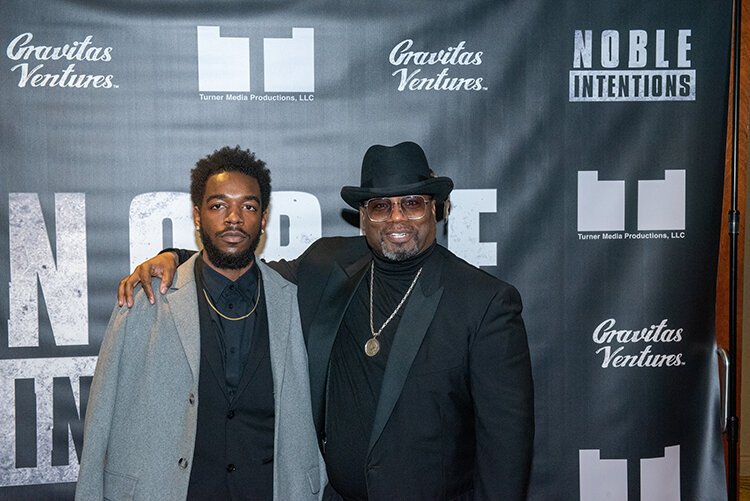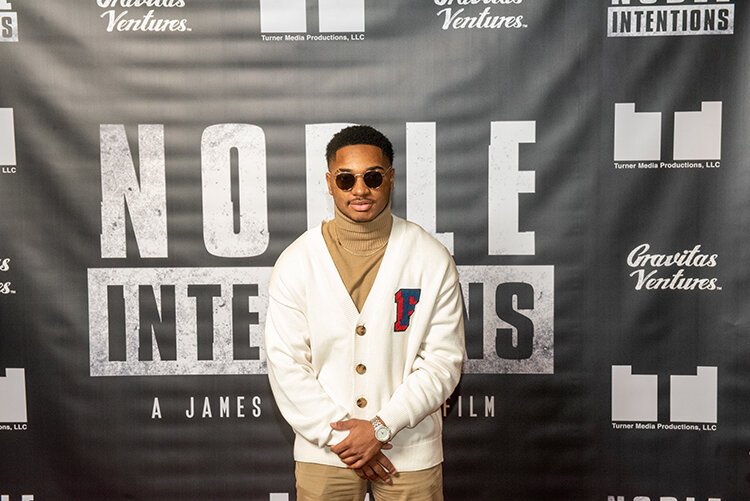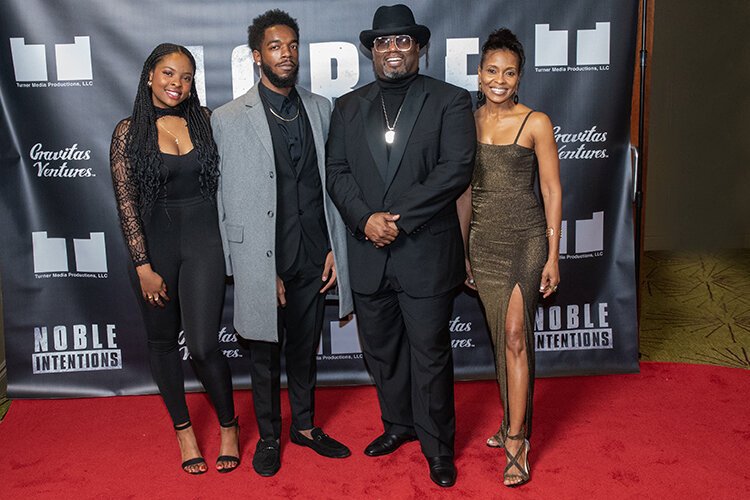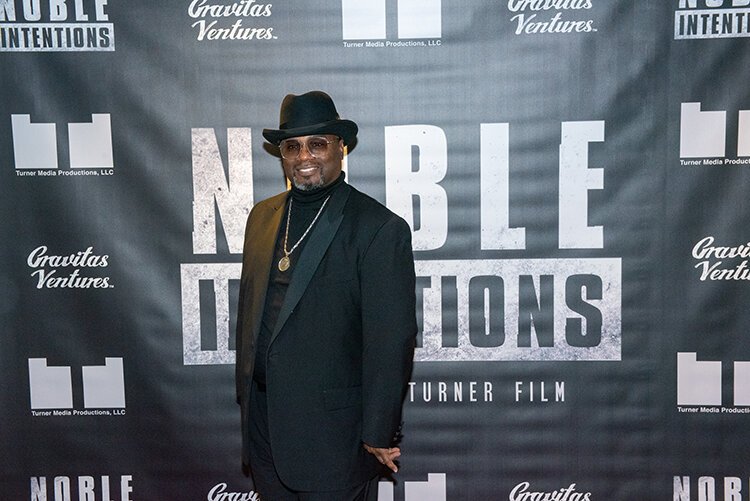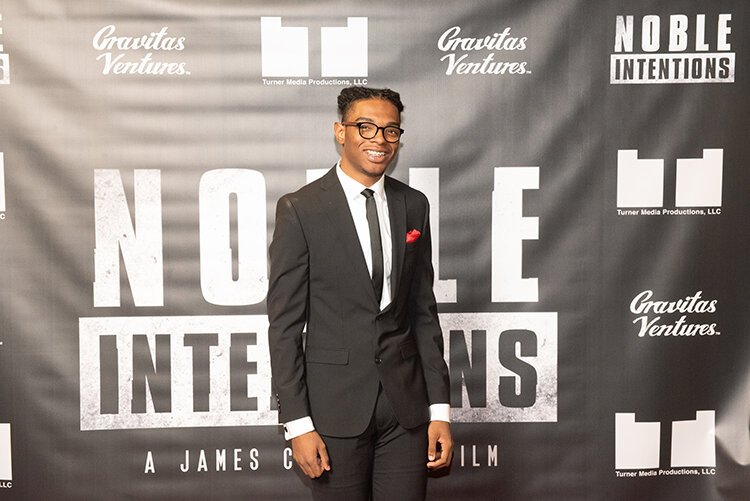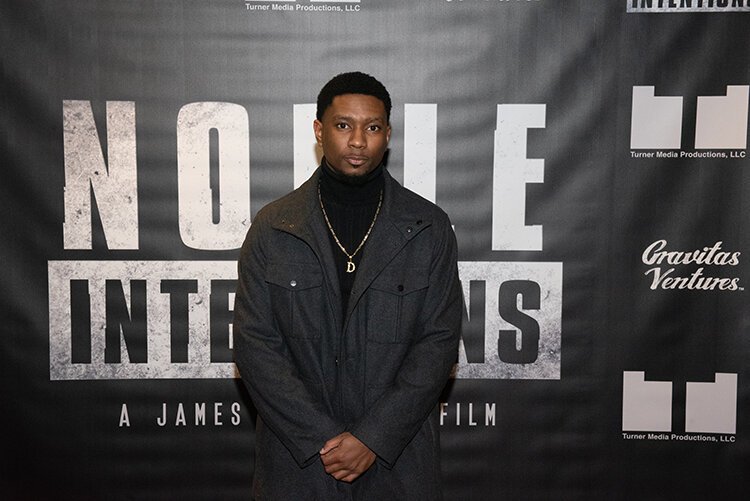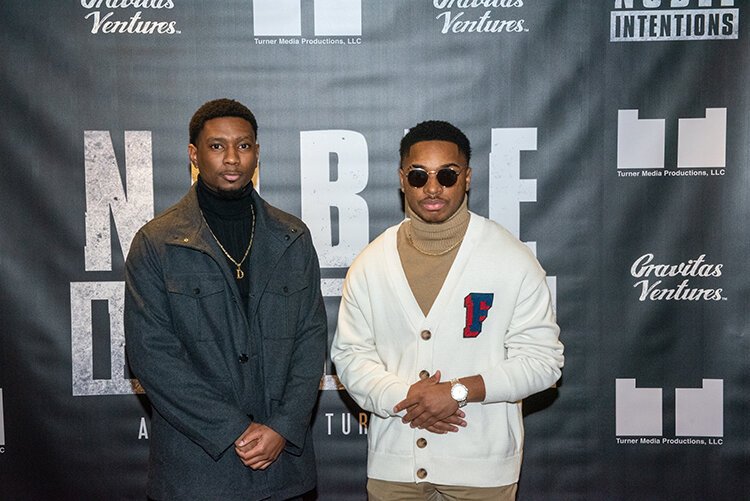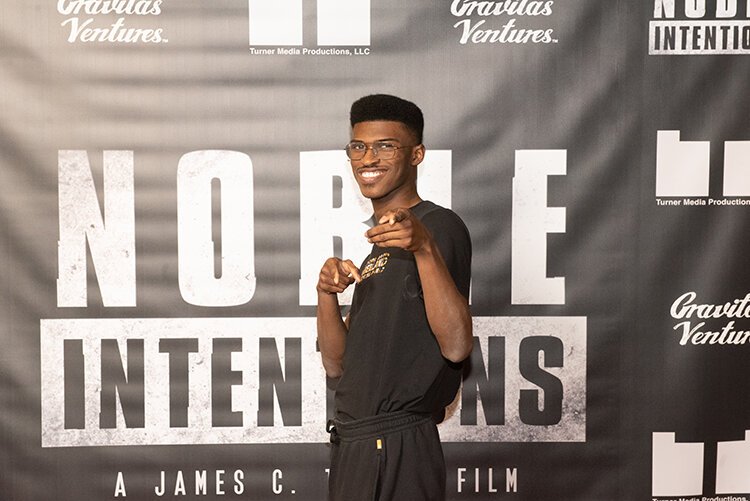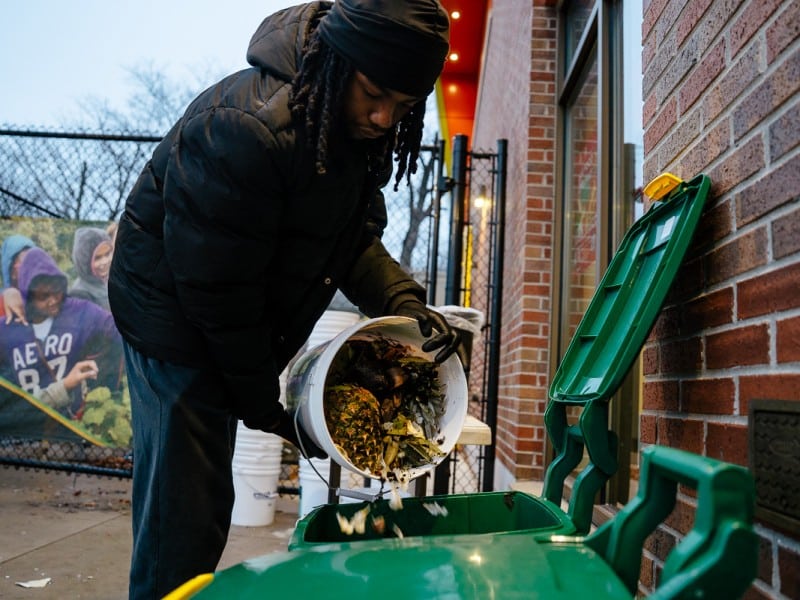Q&A with James C. Turner: Detroit filmmaker shares ‘Noble Intentions’ for a thriving film community
With the powerful Detroit coming-of-age crime drama "Noble Intentions" (starring
Obba Babatunde, Aaron D. Spears, and Lori Hayes) now available on streaming services, we check in with the filmmaker about why he thinks the city is the perfect place to tell unique stories.
Streaming services have made media projects not just more accessible to users, but to creators. Thanks to platforms like Amazon Prime, Netflix, and Tubi, many film creators are able to put their work in front of audiences who are not yet ready to regularly return to movie theaters in our “post-pandemic” society.
James C. Turner is a filmmaker from Detroit, by way of Highland Park, who is making movies telling Detroit stories and tapping into a built-in audience via streaming channels.
Turner has distinguished himself with his most recent film, “Noble Intentions“, a coming-of-age crime drama about a teenage boy struggling to help his mother pay for cancer medication. The narrative is a departure from his biggest project, which was a documentary about the history of Highland Park. He is one of the first Detroit filmmakers to secure a distribution agreement with Gravitas Ventures, a distribution company that has delivered films like “Mack & Rita” starring Diane Keaton, and “Our Friend” starring Casey Affleck.
Model D sat down with Turner to talk about the past, present, and future of Detroit filmmaking and what readers and watchers can do to support the growing medium.
Model D: What was your motivation for writing and directing this film?
James C. Turner: I feel that this movie is very important for people outside of the Black community to understand what drives many of our young men into street life. Most of the movies that I have seen about the streets never show the motivation of the guys who live this very dangerous lifestyle. The films that do show motivation typically associate it with greed. The characters are driven to buy fancy clothes, jewelry, or cars, it’s always greed. I wanted to show that many times these young people are driven by need, not greed.
Model D: How difficult was the filming process?
Turner: I am used to the filmmaking process, but this film came with a host of challenges that were unpredictable and totally out of our control. During one of the two days that we were scheduled to shoot with Obba Babatunde, we had a monsoon that shut down the freeways and caused power outages across the city.
Trees were down, freeways were flooded all the way up to the overpasses and the rain was falling relentlessly. So, after flying our main stars to town and putting them up in luxury suites, we had to cancel one of our two main days of shooting. Fortunately, our out-of-town stars were gracious enough to fly back in later to complete the shoot. Unfortunately, on the day that everybody flew back in to shoot, our main character lost his voice and could speak a word, and our main antagonist lost his father that morning. Only God brought us through. That’s just a few of our challenges, we faced so many obstacles that my wife started keeping a list to track them all.
Model D: What are some of the things you enjoy most about filming here in Detroit and Highland Park?
Turner: I’m from Highland Park, so it’s always a pleasure to be at home doing what I love to do. The entire city showed us love. The mayor allowed us to block off the street for a few of our main scenes. The Chief of Police sent a few officers to be a part of the climax scene. Businesses and the community as a whole embraced our cast and crew in an unprecedented way. It was beautiful. The actors that flew in from other states told me that they loved the vibe and that they had the wrong impression of Detroit before they arrived. So I guess we were good ambassadors for the city.
Model D: Why have you chosen to remain at home to pursue your work instead of relocating to a larger market?
Turner: With the rise of streaming platforms, the need to relocate to thrive in the film industry is becoming less necessary. I thought about moving to California, but I didn’t like the high cost of living and the earthquakes and other natural disasters that came with that move. The pandemic also expedited the rise in streaming and the use of Zoom meetings, which made everyone more comfortable doing business online. I still deal with companies in California to get things done but I get to do it right here in Michigan.
Model D: Tell me about Noble and his motivations. He seems like such a kid I’ve seen a million times before here in Detroit.
Turner: Noble is a kid that you’ve seen a million times here in Detroit. He is motivated by the desire to save his mother’s life, which is something that I believe we all can understand. He’s caught in a tough spot because he’s too young to earn enough money to pay for her cancer medicine legally, but he doesn’t want to do anything illegal to get the money. Unfortunately, situations like this are commonplace in our community. There is a serious scarcity of resources that causes many young people who are forced to grow up early to turn to the streets to get money because there is no way for them to make ends meet legally. I’ve seen it firsthand and that’s what drove me to make this film.
Model D: What were some elements in the script that are specific to the city?
Turner: The dialog is 100% Detroit. It was funny to get feedback from the Hollywood proofreaders when we sent the screenplay out for coverage. They all said the dialog was in the 95th percentile for authenticity. One lady stated that it is apparent that the writer had done an extensive amount of research. I guess I’ve been doing research to write this movie my whole life.
Model D: What do you want audiences to take away from the film?
Turner: I want the audience to understand that it’s need, not greed, that motivates our young people to get into street life.
Model D: How did you finance the film?
Turner: To finance this film, we sought out investors. There were a bunch of people who like to talk big saying that they would invest, but when it was time to hand over the money, they flaked out. It was the quiet family members who never brag about how much money they have who invested in the film. It was a real eye-opening experience, to say the least. I was shocked.
Model D: How did you come to secure the deal with Gravitas Ventures?
Turner: Gravitas Ventures was always high on our list of distributors that we would submit our film to once we were finished with postproduction. Once we finished, we submitted it to them and three days later we got an offer.
Model D: What is your next project?
Turner: My next project will be a family comedy. I lost my mom in 2019, I’m going to bring her back to life in my next movie; it’s called “Born Again”.
